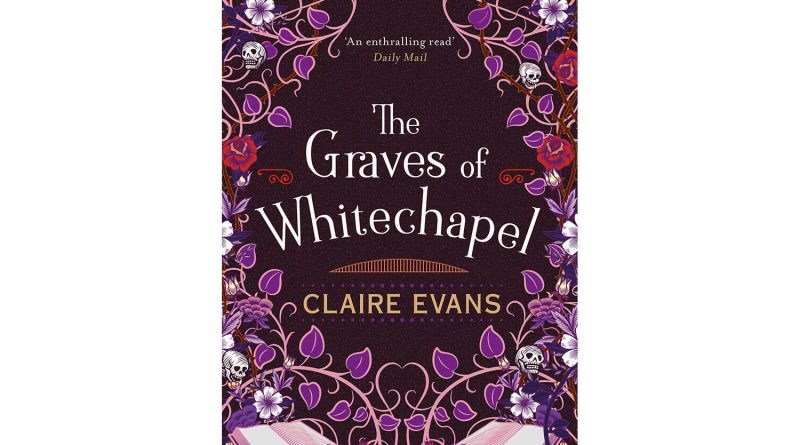Book review: ‘The Graves of Whitechapel’ by Claire Evans
Our book reviewer Tabitha Potts delves into The Graves of Whitechapel, a historical crime thriller that follows a barrister’s intricate case in Whitechapel.
This well-written and gripping historical mystery novel, set in the East End of 1882, features the engaging central character, Cage Lackmann.
Known as the Poet of Whitechapel, thanks to a poem he published as a young man, Cage is a good-looking charmer with a way with words, which he puts to use defending criminals as a barrister.
This is not by choice but is the result of a bargain his actress mother Honor made with an East End criminal, Obediah. Cage had a free education and training, but no choice about what he did for a living.
The novel opens with Cage winning the freedom of one of Obediah’s henchmen in court through a clever subterfuge. Cage despises himself for the work he does but is unable to escape from it.
He is allowed to work pro-bono for other clients, to give himself more credibility, but is still forced to defend people he despises. He finds a distraction in the shape of a local Whitechapel prostitute, Agnes, while trying to forget a painful affair with a married woman that he had in the past.
However, the past is reopened with a vengeance when a young boy, Baxter Spring, is murdered in Whitechapel. The way Baxter was found, dressed in female clothing and make-up, is exactly the same as the way another boy, Nathaniel Crewley, was found five years ago.
The main suspect then was Moses Pickering, an illustrator. Cage defended Moses in court, and he was acquitted. Now Moses has gone missing, and Jack Cross, an East London detective, believes he was the killer.
Cage finds himself in a very difficult position, seen by the police and the public as someone who enabled a murderer to go free. As a result, he cannot work for Obediah, and his only option is to try and find the true murderer before Jack Cross can find Moses.
The quest leads Cage back to a painful encounter with his old lover, Anna Kenward, which uncovers his deep-seated feelings of inadequacy and guilt. The more he investigates, the more he finds out about himself.
There is a thread of literary detection in the story: paintings and poems carry clues about the intentions and secrets of their creators. Baxter was an aspiring poet, who had scratched a line from Keats on his bedroom wall, and his own poem featuring a ‘white chapel’ – and Pickering’s illustration of it – ends up helping solve the mystery in the novel’s surprising denouement.
Author Claire Evans vividly depicts a vanished London, from an abandoned coaching inn by the railway tracks in Kilburn to the shabby taproom of the brothel in Whitechapel. The Victorian city of her imagination is a morally ambiguous one where right and wrong are not always very distinct. Cage gropes his way through the confusion much as the denizens of Evans’ East London pick their way through the omnipresent London smog.
In this amoral environment, many characters are eventually revealed to be the opposite of who they appeared to be at first, from Cage’s mother to the young vicar who befriended Baxter. But Cage slowly comes to find out that, as Pickering tells him, ‘You’re a better man than you think you are’. It’s an intricately plotted novel with a strong sense of time and place but it is the central character that will stay with the reader.
If you like this, you may enjoy our review of ‘Turn a Blind Eye’ by Vicky Newham.








